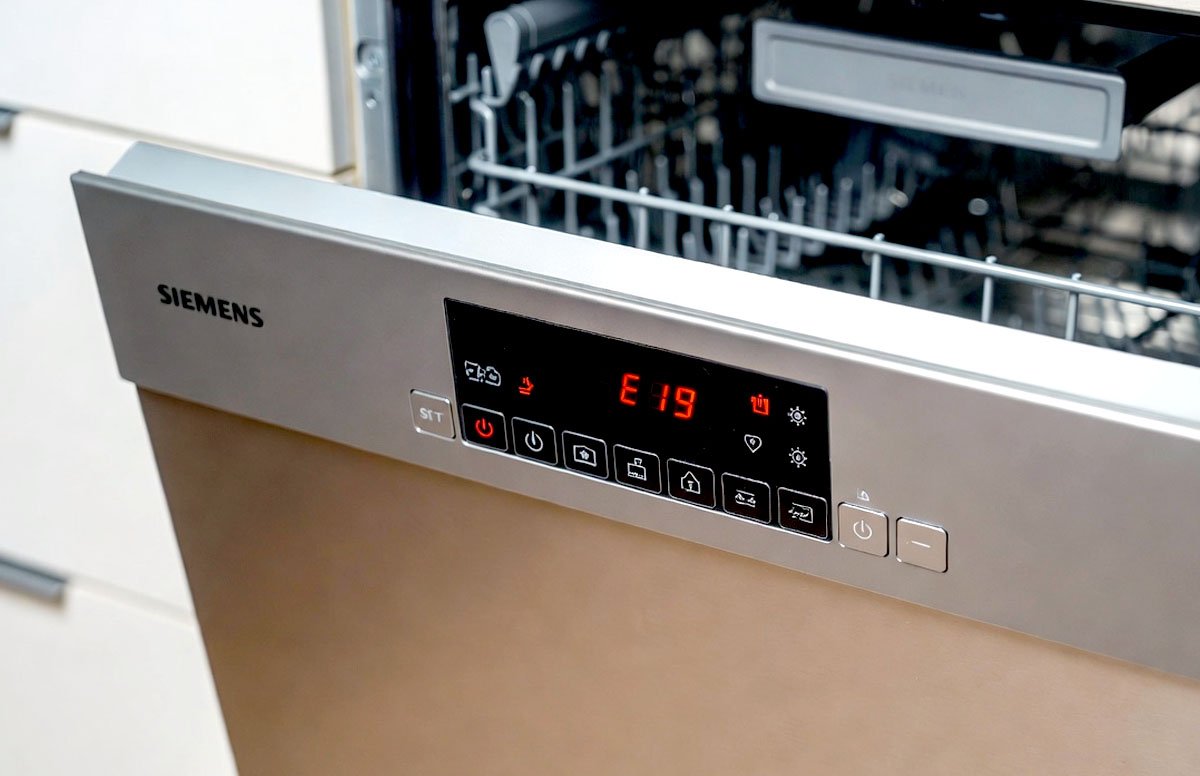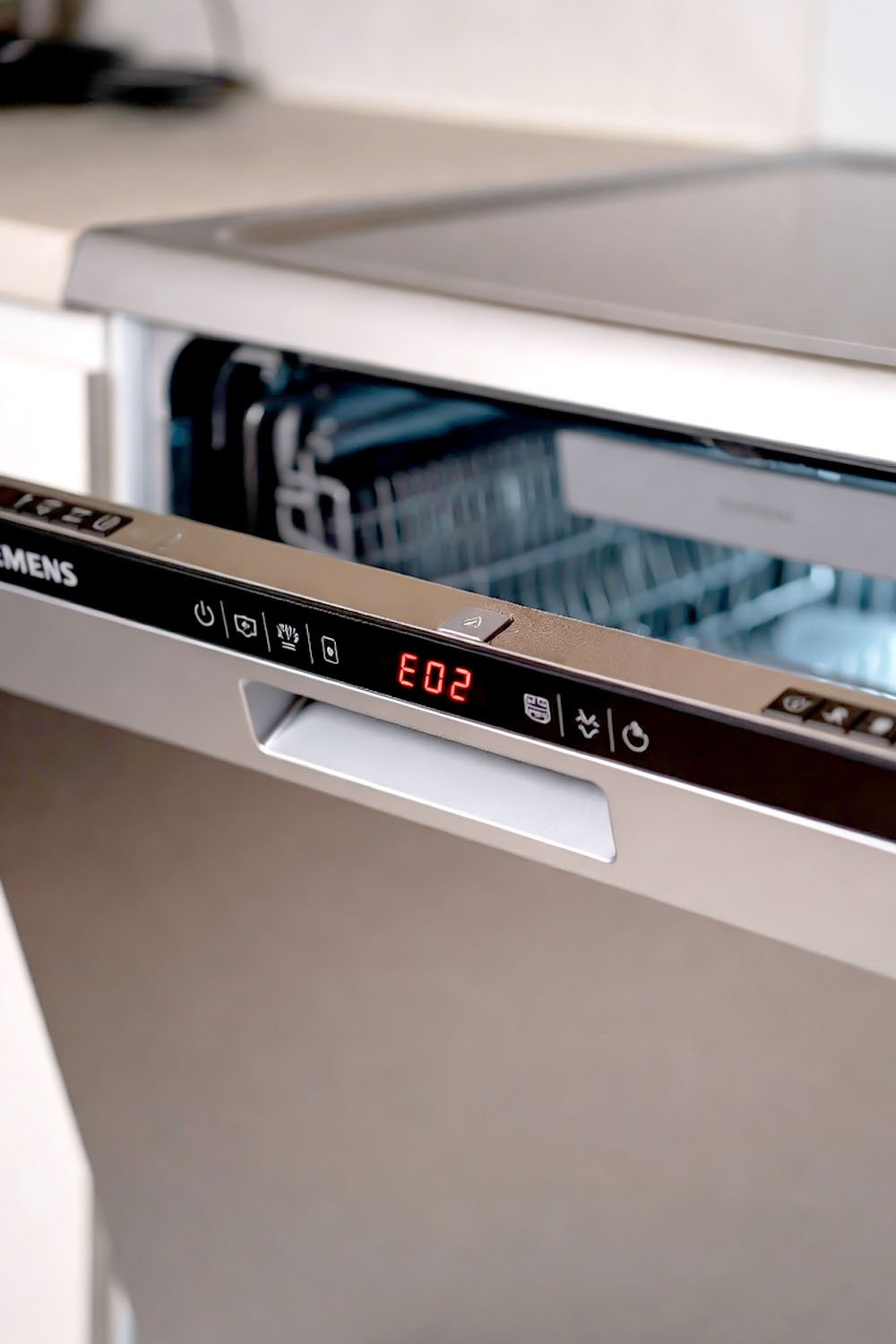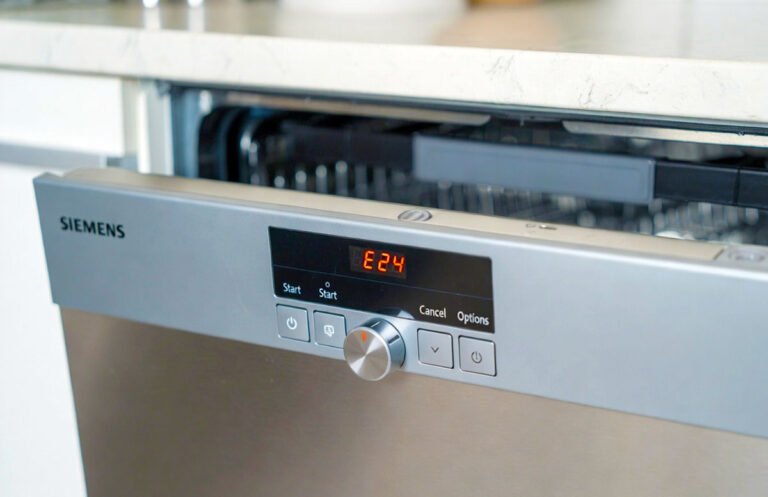As an Amazon Associate, I earn from qualifying purchases at no extra cost to you.
Does a Dishwasher Need to Be on a GFCI? Find Out Now!
You might be wondering if your dishwasher should be plugged into a GFCI outlet. I faced this question when setting up my kitchen, feeling a bit confused about safety rules and codes. The quick answer is yes—dishwashers often need GFCI protection, but it depends on where and how they are installed. In this article, you will get clear, easy-to-understand information about why GFCI is important for dishwashers, when it’s required, and how to make sure your dishwasher is safe.
Understanding What a GFCI is and Why It Matters for Dishwashers
A GFCI, or Ground Fault Circuit Interrupter, is a special type of electrical outlet or breaker that quickly turns off power if it detects an electrical problem. This is very important for places near water, like kitchens and bathrooms, because water and electricity together can be dangerous. A dishwasher uses water and electricity, so it needs special protection to stop shocks or fires.
The GFCI works by monitoring the flow of electricity in a circuit. If it sees a difference between the electricity going out and coming back, it means electricity might be leaking somewhere, possibly through a person or water. The GFCI then cuts the power instantly, which can save lives and prevent accidents.
Why does this matter for dishwashers? Dishwashers can sometimes have leaks or moisture near their electrical parts. If a person touches the dishwasher while it’s leaking electricity, they can get shocked. That is why GFCI protection is important—it makes the dishwasher safer to use and reduces the risk of electrical accidents.
Not all dishwashers are required by law to have a GFCI, but many local building codes say they do, especially if the dishwasher is near water or in certain parts of the house. Even if it’s not required, having a GFCI adds extra safety.
- GFCI stops dangerous electric shocks near water.
- Dishwashers use water and electricity, so they can be risky.
- GFCI senses electric leaks and quickly cuts power.
- Many local rules require dishwashers to have GFCI protection.
- GFCI makes using a dishwasher safer and helps prevent accidents.
When Does the National Electrical Code (NEC) Require GFCI for Dishwashers?
The National Electrical Code (NEC) is a set of rules that electricians follow to keep electrical work safe in homes and buildings. These rules change over time to improve safety. One important rule is about GFCI protection for dishwashers.
According to the NEC, as of recent versions (like the 2020 edition), dishwashers installed in kitchens usually must be connected to a GFCI-protected circuit. This means the dishwasher’s power should come through a GFCI outlet or a GFCI circuit breaker in the main electrical panel. The goal is to reduce the risk of electric shock in wet areas like kitchens.
The NEC also says that all outlets within six feet of a water source, such as a sink, should be GFCI protected. Since dishwashers are often near sinks, this usually means the dishwasher needs GFCI too.
If your house is older, the rules might be different, but when you install a new dishwasher or replace the electrical work, electricians usually follow the latest NEC rules. This means adding GFCI protection is often necessary.
- NEC updates rules for electrical safety regularly.
- Latest NEC versions require GFCI for dishwashers in kitchens.
- Outlets near water sources must have GFCI protection.
- Dishwashers near sinks are usually included in this rule.
- Older homes may not have this, but new work should follow NEC.
- GFCI reduces electric shock risk in kitchens.
How to Check If Your Dishwasher Is on a GFCI Outlet or Circuit
If you want to know if your dishwasher is connected to a GFCI, there are some simple ways to check. First, look near your dishwasher for an outlet with “test” and “reset” buttons. These buttons show it’s a GFCI outlet. If you see one, your dishwasher is likely on a GFCI outlet.
If your dishwasher is hardwired (not plugged into an outlet), then the GFCI might be at the circuit breaker box. You can find the main electrical panel in your home and look for breakers that have “GFCI” written on them or have a small reset button.
To test the GFCI, press the “test” button on the outlet or breaker. If it works, it will cut power to the dishwasher and other devices on the circuit. Then press “reset” to turn power back on. If the dishwasher loses power when you press test, it means it is protected by a GFCI.
If you don’t see any GFCI outlet near the dishwasher and the breaker doesn’t say GFCI, it might not be protected. In that case, you should consider upgrading to a GFCI outlet or breaker for safety.
- Look for GFCI outlets near the dishwasher with test/reset buttons.
- If hardwired, check the main electrical panel for GFCI breakers.
- Press “test” button to see if power cuts off; press “reset” to restore.
- If power cuts off during test, dishwasher has GFCI protection.
- No GFCI found? Consider installing one for safety.
- Testing GFCI regularly helps keep your home safe.
What Are the Benefits of Having a Dishwasher on a GFCI?
Having your dishwasher on a GFCI outlet or circuit brings many benefits, especially for safety and peace of mind. The most important benefit is protection from electrical shocks. If a problem happens, like water leaking onto electrical parts, the GFCI will cut the power fast to prevent shocks.
Another benefit is fire prevention. Faulty wiring or moisture in dishwashers can cause electrical shorts, which might start a fire. GFCI helps prevent this by stopping the electricity as soon as it senses a problem.
GFCI protection also helps your dishwasher last longer by protecting its electrical system from damage caused by ground faults. This means fewer repairs and less chance of needing to replace your dishwasher.
Some insurance companies may even offer better rates or coverage if your home has GFCI protection in wet areas. That can save you money in the long run.
- GFCI protects from electric shocks.
- It helps stop fires caused by electrical faults.
- Protects dishwasher’s electrical parts from damage.
- Can reduce repair and replacement costs.
- Might lower home insurance costs.
- Gives peace of mind when using your dishwasher.
How to Install or Upgrade Your Dishwasher to Be GFCI Protected
If your dishwasher is not on a GFCI and you want to make it safer, you can either install a GFCI outlet or a GFCI circuit breaker. Installing a GFCI outlet near your dishwasher is a common way and usually easy for electricians.
To install a GFCI outlet, the electrician will replace the normal outlet with a GFCI type that has test and reset buttons. This will protect the dishwasher and any other devices plugged into the same outlet.
If your dishwasher is hardwired, installing a GFCI circuit breaker in your main electrical panel might be better. This breaker protects the entire circuit supplying power to the dishwasher. It requires a professional electrician because working with circuit breakers can be dangerous.
Always hire a licensed electrician to install or upgrade GFCI protection. They will make sure everything meets local electrical codes and is safe to use.
If you want to do it yourself and are skilled with electrical work, follow the instructions carefully and turn off power before working. But hiring a professional is safest.
- Replace normal outlet with GFCI outlet near dishwasher.
- Use GFCI circuit breaker for hardwired dishwashers.
- Always hire a licensed electrician for installation.
- GFCI installation must follow local codes.
- DIY is possible but requires safety and skills.
- Proper installation ensures dishwasher safety.
What to Do If Your Dishwasher Trips the GFCI Frequently
Sometimes, a dishwasher on a GFCI may cause the GFCI to trip often, cutting off power unexpectedly. This can be frustrating, but it usually signals an electrical problem that should not be ignored.
Frequent tripping can happen because of a ground fault inside the dishwasher or wiring issues like moisture, damaged wires, or poor connections. It might also be due to using an old or faulty GFCI outlet or breaker that is too sensitive.
If your dishwasher trips the GFCI often, first unplug the dishwasher or turn off the breaker. Then call a professional electrician or appliance repair person to check for problems. Trying to keep resetting the GFCI without fixing the cause is unsafe.
In some cases, the dishwasher itself might need repair or replacement. Fixing the issue is important to avoid shocks, electrical fires, or damage to your dishwasher.
- Frequent GFCI trips mean a possible electrical fault.
- Could be wiring problems, moisture, or a faulty dishwasher.
- Old or bad GFCI devices may trip too easily.
- Unplug or turn off power if tripping happens.
- Call an electrician or repair service to fix issues.
- Avoid resetting GFCI repeatedly without solving the cause.
Final Thoughts
Making sure your dishwasher is connected to a GFCI outlet or breaker is a smart and safe choice. GFCI protection can prevent electric shocks, fires, and damage caused by water and electrical faults. Following the latest safety codes and having the right protection makes your kitchen safer for you and your family. If you are not sure about your dishwasher’s setup, checking and upgrading to GFCI protection is worth the time and cost. Safety in your home is always the best investment.
Frequently Asked Questions (FAQs)
Is it necessary to have a GFCI for every dishwasher?
It depends on local rules and where your dishwasher is installed. Most modern electrical codes require dishwashers in kitchens to have GFCI protection because of the water nearby. If your home is older, it might not be required, but adding GFCI is a good safety step to protect you from electric shocks.
Can I install a GFCI outlet myself for my dishwasher?
If you have good electrical knowledge and follow safety rules, you can install a GFCI outlet. However, working with electricity can be dangerous, especially in kitchens near water. Hiring a licensed electrician is safer and ensures the installation meets local codes.
Do I need GFCI if my dishwasher is hardwired?
Yes, hardwired dishwashers still need GFCI protection according to current safety codes. This usually means installing a GFCI circuit breaker in the main panel that controls the dishwasher’s power. A professional electrician should handle this work.
Is it okay if my dishwasher trips the GFCI sometimes?
No, frequent tripping is a sign of an electrical problem. It could be a ground fault in the dishwasher or wiring issues. You should unplug the dishwasher and call an electrician to find and fix the problem. Repeatedly resetting the GFCI without fixing the issue is dangerous.
Can a dishwasher work safely without a GFCI?
Technically, yes, but it is not recommended. Without GFCI protection, there is a higher risk of electric shock or fire if something goes wrong. Many building codes require GFCI for dishwashers to keep users safe.
Do all dishwashers come with built-in GFCI protection?
No, dishwashers do not have built-in GFCI devices. The GFCI protection comes from the outlet or circuit breaker supplying power to the dishwasher. That is why the outlet or breaker must be a GFCI type if required.
Is it expensive to add GFCI protection for my dishwasher?
The cost depends on whether you need a new outlet or breaker and the electrician’s fees. Usually, installing a GFCI outlet is affordable. Circuit breakers cost more and may require more work. But the safety benefits make the cost worthwhile.
Can a GFCI protect other kitchen appliances too?
Yes, a GFCI outlet or breaker protects all devices plugged into that circuit. If your dishwasher shares a circuit with other appliances, the GFCI protects all of them from ground faults and shocks, keeping your kitchen safer.









